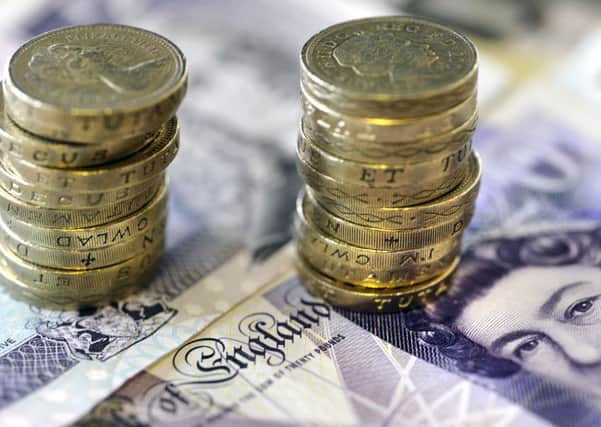Pound continues to fall as economic fears deepen


The pound plunged 3.35 per cent to $1.32 dollars – its lowest level since 1985 – following on from Friday’s colossal dive of 10 per cent.
Against the euro the pound was also down, falling 2.27 per cent to €1.20.
Advertisement
Hide AdAdvertisement
Hide AdChancellor George Osborne had contributed to a mini-rally earlier in the day after he spoke of Britain’s strong economy and claimed the country remains “open for business”.
However, the gains soon evaporated, with experts warning that months of uncertainty could see more volatility.
Ken Odeluga, market analyst at City Index, said: “Osborne was of course not yet able to provide any further material certainty on key procedural questions (particularly when Article 50 will be triggered) facing Britain, and consequently its markets, over the next several months.
“It is uncertainty surrounding such questions that are contributing to sterling’s softness.” Laith Khalaf, senior analyst at stockbroker Hargreaves Lansdown, said the market was now pricing in an 80 per cent chance of interest rates being cut from their record low of 0.5 per cent by the end of this year, with a 15 per cent chance they could even turn negative.
He said: “This is good news for borrowers, who can now expect lower mortgage rates for even longer, but cash savers will be wondering just how many years they have to wait to get a decent return on their deposits.”
“The Bank of England may soon find itself between a rock and a hard place, if the economy and inflation start pointing in different policy directions. That’s because although the Brexit vote has increased economic uncertainty, it has also taken a toll on sterling, which is likely to feed through into inflation because it makes imports that much more expensive.
“This raises the uncomfortable prospect for the central bank of cutting interest rates while inflation is rising, something it has proved it is willing to do in the past in order to boost the economy.”
